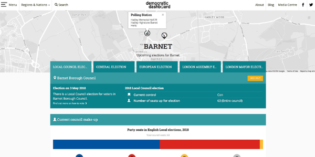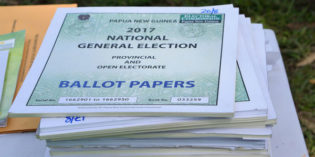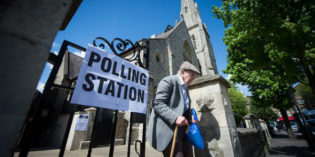Elections and electoral systems

More women at the top? Why we see variation in local–national gender gaps for elected assemblies
There is considerable variation in the representation of women in elected chambers between different levels of government, but the differences are not uniform between countries. By examining the unusual case of Germany, where the representation of women is greater at higher echelons, Jessica Fortin-Rittberger, Christina Eder, Corinna Kroeber and Vanessa Marent find that the nature of the party system is crucial, in particular the strength of left-leaning and minor parties, which has implications for understanding levels of representation in other democracies.

England’s local elections 2018: bridging the information gap with the Democratic Dashboard
On 3 May, voters across England have the chance to vote in elections to their local councils. The Democratic Dashboard is Democratic Audit’s voter resource, which brings together an array of information on the local elections taking place. Our aim is to simplify the complicated world of local elections in the UK, and present the essential information in an effort to boost participation. The UK has one of the lowest rate of electoral participation by young people in the OECD, especially at local elections, and we hope to play a part in using the digital environment to bridge the information gap, writes Joshua Townsley.

Digital technology is changing party politics, the interesting question is how
It is evident from the 2017 general election, writes Kate Dommett, that digital technology has been fully embraced by political parties and incorporated into campaigning strategies. It is also creating opportunities for satellite campaigns to mobilise citizens. Longer term, digital innovations have the potential to reshape the nature of engagement between citizens and parties, though these more fundamental changes are not yet being implemented.

Why corruption and coercion flourish in flawed elections
Electoral malpractice – from subtle disinformation campaigns through to bribery, corruption and overt physical intimidation – undermine democratic contests across the world. A new report by Pippa Norris, Thomas Wynter and Sarah Cameron from the Electoral Integrity Project, which adds 44 election evaluations from 2017 to its rolling survey of elections, finds that electoral corruption and coercion are related to one another, and more prevalent in societies that are poorer, less democratic, and heavily dependent on natural resources.

Voter ID at British polling stations – learning the right lessons from Northern Ireland
Asking voters to produce a form of identification before voting will be piloted in five English council areas this May. The move represents part of the government’s response to a series of recent recommendations for measures to safeguard the electoral process from fraud. While the pilots will provide important opportunities for policy-learning, Stuart Wilks-Heeg argues that much can already be gleaned from the experience of Northern Ireland, where voter ID was first introduced in 1985.

Referendums, though they may be political lifeboats, can be very bad for democracy
Britain has an uncodified constitution. No one is exactly clear – when is it proper for a government to hold a referendum? In the absence of clarity, all seek to take advantage, to the detriment of well-functioning democracy. Consequently, while referendums may be treated as political lifeboats, they can be very bad for democracy, argues Peter Wiggins.

The prospects for electoral reform in Wales
With the introduction of the Wales Act of 2017, the National Assembly gains significant new powers. As part of this, it can enact its own proposals for electoral reform, including changes to the electoral system and introducing votes at 16. Jac Larner takes a look at what these changes would entail, and the prospects for implementation.

Why the media helps make Hungarian elections so predictable
Hungary will hold parliamentary elections on 8 April, with polls suggesting Fidesz, led by incumbent Prime Minister Viktor Orbán, is in a strong position to hold on to power. Andrea Fumarola argues that a sharp decline in press freedom over the last decade has helped Orbán to consolidate his political position, but that the dominance of Fidesz has come at some cost to the quality of Hungarian democracy.

Increasing ethnic minority representation: why both political parties and electoral districts matter
National parliaments in Western democracies remain far whiter than the increasingly diverse populations they represent. Benjamin Farrer (Knox College) and Josh Zingher (Old Dominion University) find that the explanation for this lies in the interaction of local demographics and political parties, and that as a result centre-left parties in the US, UK and Australia have been more successful at getting ethnic minority candidates elected.

Beyond anecdotes on lowering the voting age: new evidence from Scotland
The question whether to lower the voting age in the UK has been the subject of ongoing debate. Jan Eichhorn (University of Edinburgh) writes that, although much of the discussion has been based around normative arguments and personal stories, it is crucial to review the evidence so that the empirical arguments prevail.


 Democratic Audit's core funding is provided by the Joseph Rowntree Charitable Trust. Additional funding is provided by the London School of Economics.
Democratic Audit's core funding is provided by the Joseph Rowntree Charitable Trust. Additional funding is provided by the London School of Economics.